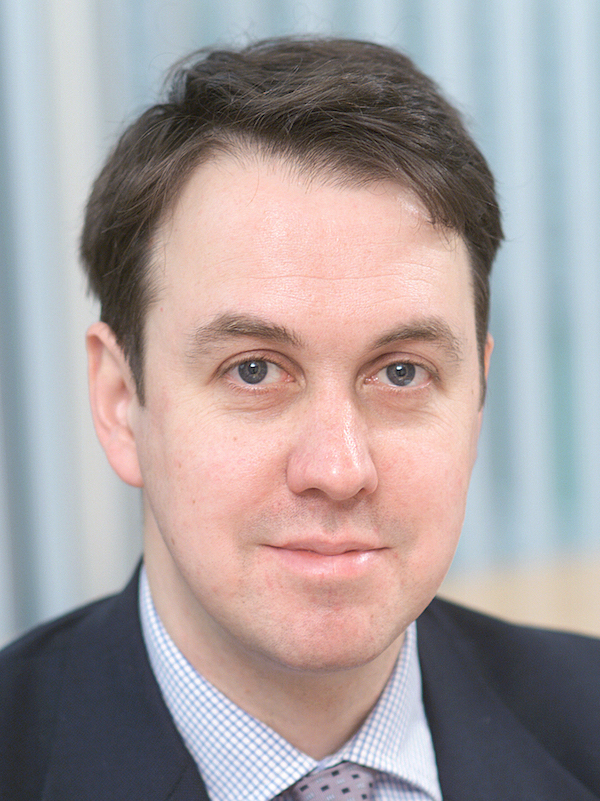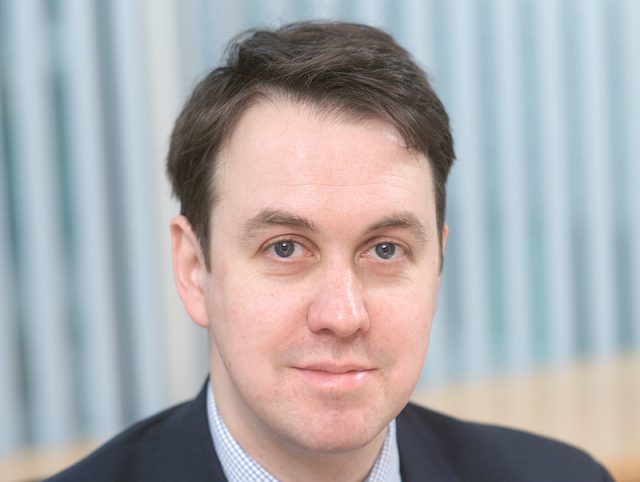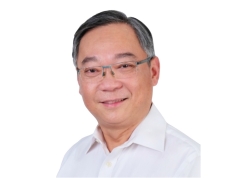Schroders Chief Economist Keith Wade: Which Trends Have Been Strengthened or Challenged by Covid-19?
Investment commentary on Which trends have been strengthened or challenged by Covid-19 by Keith Wade, Schroders Chief Economist & Strategist (July 2021):
Schroders is a global active asset manager managing more than £574.4 billion (€641.7 billion / $785.1 billion 31/12/20) assets and managed locally by 42 investment teams worldwide. As a global active asset manager, the way we direct capital not only shapes the financial returns we achieve for our clients but also the impact that the companies in which we invest on their behalf might have on society.
Inescapable Truths Update: Which trends have been strengthened or challenged by Covid-19?

We look at the post-Covid landscape through the lens of our Inescapable Truths, where we focus on three key disruptive factors which will influence the medium term outlook:
- the accelerated adoption of technology
- increased populism
- a greater focus on environmental issues, particularly climate change.
The world economy is emerging from the Great Lockdown, but progress is patchy. The US and UK appear to be leading the way, while China remains robust. The eurozone is following, albeit more slowly due to an uneven start with its vaccine programme. Nonetheless, the overall picture is one of developed markets outperforming emerging markets, with economies like India and Brazil struggling to contain the virus.
The other fault line opened up by the pandemic has been inequality within economies, which has likely increased on both an income and wealth metric.
Meanwhile, on a more positive note, the ability of economies to adapt, facilitated by the acceleration in technology, holds out the promise of stronger productivity growth. We have raised our medium-term forecasts as a result, despite the persistence of adverse demographics.
Increased technology may make the efforts of policymakers to address inequality more difficult as the fourth industrial revolution displaces more workers. So, although populism has not reared its head and become an accelerated truth during the pandemic, it is likely to return. History shows social unrest increasing after a pandemic is over, creating an environment for more populist policies.
Environmental issues have come into increasing focus, with greater efforts to tackle climate change. Much attention has been on the Biden administration’s decision to take the US back into the Paris Accord and increase infrastructure spend in this area, but we have also seen China set a target to be carbon neutral. The energy transition creates significant opportunities, but it also threatens to exacerbate inequalities between developed and emerging markets.
Government finances have deteriorated significantly during the pandemic, raising questions about debt sustainability. Nonetheless, there has been a shift in thinking on fiscal policy with governments unwilling to return to austerity and squeeze the public sector. Economic recovery will help, but given the extra spending demands of healthcare and climate change going forward, the pressure on government finances is likely to remain. Higher taxation seems inevitable and governments are training their sights on the corporate sector.
The increasing dominance of monetary policy by fiscal considerations means financial repression is likely to continue. Interest rates remain lower for longer despite the improved growth outlook. Alongside this, however, comes an increased tail risk of higher inflation. Although we expect the recent pick-up in inflation to be transitory, cyclical pressures are building and monetary policy will need to be tightened in 2022.
Looking further out, it is not difficult to construct pessimistic scenarios. An example would be that persistent inequality fuels populist governments who then undermine central bank independence such that inflation gets out of control.
Yet there are still powerful forces pointing the other way. Technology tends to drive down prices through increased competition in both product and labour markets. Also, there is still a consensus in favour of low inflation amongst central banks and the shifts in policy are recognition that in the face of structural forces inflation has been too low.
Against this backdrop there are no easy answers for investors who will need to ride the disruptive trends and find the pockets of growth in the world economy. What seems clear is that governments may now be playing a greater role in driving those trends.
Important Information
This document is intended to be for information purposes only and it is not intended as promotional material in any respect nor is it to be construed as any solicitation and offering to buy or sell any investment products. The views and opinions contained herein are those of the author(s), and do not necessarily represent views expressed or reflected in other Schroders communications, strategies or funds. The material is not intended to provide, and should not be relied on for investment advice or recommendation. Any security(ies) mentioned above is for illustrative purpose only, not a recommendation to invest or divest. Opinions stated are valid as of the date of this document and are subject to change without notice. Information herein and information from third party are believed to be reliable, but Schroder Investment Management (Hong Kong) Limited does not warrant its completeness or accuracy.
Investment involves risks. Past performance and any forecasts are not necessarily a guide to future or likely performance. You should remember that the value of investments can go down as well as up and is not guaranteed. You may not get back the full amount invested. Derivatives carry a high degree of risk. Exchange rate changes may cause the value of the overseas investments to rise or fall. If investment returns are not denominated in HKD/USD, US/HK dollar-based investors are exposed to exchange rate fluctuations. Please refer to the relevant offering document including the risk factors for further details.
This material has not been reviewed by the SFC. Issued by Schroder Investment Management (Hong Kong) Limited.
Schroder Investment Management (Hong Kong) Limited Level 33, Two Pacific Place, 88 Queensway, Hong Kong www.schroders.com.hk
About Schroders
As a global active asset manager, the way we direct capital not only shapes the financial returns we achieve for our clients but also the impact that the companies in which we invest on their behalf might have on society. The relationship between these two outcomes has rapidly evolved as we see a fundamental shift in how companies are viewed and valued. Understanding the impact that they can have on society and the planet is crucial in assessing their ability to deliver risk-adjusted profits.
Our ongoing success is built on a history of experience and expertise, whereby we partner with our clients to construct innovative products and solutions across our five business areas consisting of Private Assets & Alternatives, Solutions, Mutual Funds, Institutional and Wealth Management and invest in a wide range of assets and geographies. By combining our commitment to active management and focus on sustainability, our strategic capabilities are designed to deliver positive outcomes for our clients.
We are responsible for £574.4 billion (€641.7 billion/$785.1 billion 31/12/20) assets of our clients, managed locally by 42 investment teams worldwide. As a global business with over 5,500 talented staff across 35 locations, we are able to stay close to our clients and understand their needs. We have over 200 years of experience in investment and innovation.
Visit: www.schroders.com.hk
Sign Up / Register
Caproasia Users
- Manage $20 million to $3 billion of assets
- Invest $3 million to $300 million
- Advise institutions, billionaires, UHNWs & HNWs
Caproasia Platforms | 11,000 Investors & Advisors
- Caproasia.com
- Caproasia Access
- Caproasia Events
- The Financial Centre | Find Services
- Membership
- Family Office Circle
- Professional Investor Circle
- Investor Relations Network
Monthly Roundtable & Networking
Family Office Programs
The 2025 Investment Day
- March - Hong Kong
- March - Singapore
- July - Hong Kong
- July - Singapore
- Sept- Hong Kong
- Sept - Singapore
- Oct- Hong Kong
- Nov - Singapore
- Visit: The Investment Day | Register: Click here
Caproasia Summits
- The Institutional Investor Summit
- The Investment / Alternatives Summit
- The Private Wealth Summit
- The Family Office Summit
- The CEO & Entrepreneur Summit
- The Capital Markets Summit
- The ESG / Sustainable Investment Summit



























